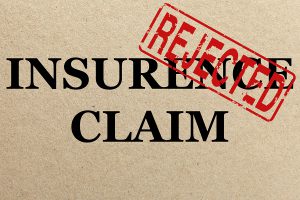Insurance Disputes: Why Legal Advice May Help You In The Fight Against Your Insurance Company
 Michael Babboni
Personal Injury
There may come a time when you need to resolve a dispute between you and your insurance company. These disagreements often occur due to problems with the amount due on a bill, the amount the company paid on a claim, or the nonpayment of a claim. When dealing with a situation like this, it’s important to know some of your rights with an insurance company:
Michael Babboni
Personal Injury
There may come a time when you need to resolve a dispute between you and your insurance company. These disagreements often occur due to problems with the amount due on a bill, the amount the company paid on a claim, or the nonpayment of a claim. When dealing with a situation like this, it’s important to know some of your rights with an insurance company:- An insurance company cannot knowingly tell you that your policy means something that it doesn't actually mean. They also cannot change your policy without first informing you in writing.
- The insurance company cannot withhold payment on a claim against one part of your policy in order to force an issue on a claim against another part of your policy. In other words, your insurer cannot withhold payment on a claim against the collision portion of your auto policy to force you to settle on the liability portion.
- In some states, companies have to acknowledge within 15 days that they received notice of a claim. Afterwards, they must investigate, process, and settle it quickly.
- Companies cannot ask you for unnecessary forms in an effort to delay an investigation or payment of a claim.
- Companies are allowed to appeal decisions they truly believe are unfair, but they cannot use the appeal process to force their policyholders to settle for less than they are due.
- A company must have good reason to deny or delay a claim and must explain the reason to the policyholder. In most cases, lack of coverage or nonpayment of premiums is the reason for a denied claim.
When a policyholder submits a claim, they expect that their company will act in good faith and honor the validity of the claim. Insurance disputes often arise after an insurance company denies a seemingly valid claim multiple times without a legitimate explanation. Unfortunately, insurance companies will often manipulate the language in their policies to deny valid claims. Insurance providers tend to protect their cash reserves and will avoid payouts to policyholders if possible. When an insurance company denies or undervalues a claim, they may state that:
- There was a material misrepresentation in the policy itself, excluding coverage for this particular claim.
- The insurer failed to pay their policy premiums on time, causing the coverage to lapse.
- The injury falls outside of the scope of coverage.
Insurance companies generate a greater profit when policyholders don’t file claims or fail to collect on those submitted under their policies. Some insurance companies will habitually deny claims, regardless of its credibility. They will only investigate a claim if the policyholder decides to take legal action.
Under Florida law, an insurance company has violated the implied covenant of good faith and fair dealing if it acted unfairly towards its policyholder in response to a claim. Most states, including Florida, have adopted the Unfair Claim Settlement Practices Act, which helps to protect the rights of insured policyholders within the state.
Unfair claims handling occurs when an insurance company attempts to avoid paying valid claims or reduces the payment to their own policyholders. Examples of unfair claims handling include
- Fraud
- Misleading or deceiving a policyholder
- Neglect or refusal to fulfill a contractual obligation
- Conscious wrongdoing by the insurance company
If you feel that your insurance company is mistreating you, make sure to call Shapiro, Goldman, Babboni, & Walsh (727) 381-9200 in order to conduct a free case review. There are no fees unless we recover money on your behalf.
